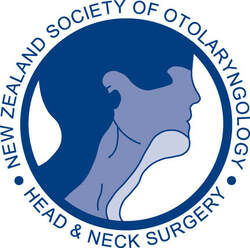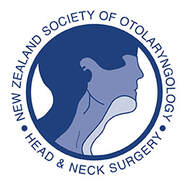Mr Robert AllisonOtolaryngologist/Head and Neck Surgeon, Canterbury DHB, Christchurch, NZ
Robert Allison is an Otolaryngologist/Head and Neck Surgeon at Christchurch Hospital with an interest in Head and Neck Surgery. He completed surgical training (FRACS) in New Zealand before doing Fellowships in Head and Neck Cancer Surgery in the United Kingdom and the Netherlands. He is a past examiner of the Royal Australasian College of Surgeons and past president of the New Zealand Society of Otolaryngology Head and Neck Surgery. He is also a Trustee of the New Zealand Research Foundation of the Australia and New Zealand Head and Neck Cancer Society.
|
A Few Thoughts on the Multidisciplinary Head and Neck Cancer Clinic
Multidisciplinary clinics have become very popular in the last two decades, particularly in managing cancer patients, including Head and Neck Cancer. As cancer care is becoming more complex and the importance of allied health professionals is becoming increasingly recognised, multidisciplinary cancer care is becoming "standard of care"
Although a number of studies have suggested improved outcomes for patients managed in a multidisciplinary setting, the evidence for this is weak, with mixed results for patient overall survival.
Our experience with a Multidisciplinary Head and Neck Cancer Clinic in Christchurch is presented, as well as a brief overview of clinics throughout the country.
While there are a number of advantages in multidisciplinary care such as multiple treatment options, improved tumour staging, co-ordination of care etc, there are also disadvantages that need to be acknowledged i.e. a stressful patient experience, "treatment by committee", potential delays in treatment, increased costs in an under-resourced health service.
Multidisciplinary clinics have become very popular in the last two decades, particularly in managing cancer patients, including Head and Neck Cancer. As cancer care is becoming more complex and the importance of allied health professionals is becoming increasingly recognised, multidisciplinary cancer care is becoming "standard of care"
Although a number of studies have suggested improved outcomes for patients managed in a multidisciplinary setting, the evidence for this is weak, with mixed results for patient overall survival.
Our experience with a Multidisciplinary Head and Neck Cancer Clinic in Christchurch is presented, as well as a brief overview of clinics throughout the country.
While there are a number of advantages in multidisciplinary care such as multiple treatment options, improved tumour staging, co-ordination of care etc, there are also disadvantages that need to be acknowledged i.e. a stressful patient experience, "treatment by committee", potential delays in treatment, increased costs in an under-resourced health service.




